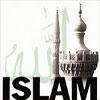The most dangerous leader of anti-Shia group of Lashkar-e-Jhangvi 'Malik Ishaq' along with his 2 sons killed by Pakistani police

MUZAFFARGARH, Pakistan - Ahlul Bayt News Agency - A police ‘encounter’ in Muzaffargarh early on Wednesday morning left at least 14 suspected terrorists dead, including chief of the banned Lashkar-e-Jhangvi (LeJ), Pakistani news media reported.
According to initial information, LeJ chief Malik Ishaq was being taken for identifying some weapons when the encounter took place. He, along with his two sons Usman and Haq Nawaz were among those killed in the suspected encounter. Ghulam Rasool of the LeJ and his two sons were also killed.
The spokesman said that when the police party was returning after making the recovery, it was attacked by some 12 to 15 gunmen who succeeded in freeing Ishaq, his sons and the other accused and fleeing away on motorcycles.
The militants were met with by SHO CTD police station who had quickly been informed about the attack on the police party and was travelling on the route that the militants had taken, the spokesman said, adding that that’s how the encounter ensued.
The SHO challenged the militants, resulting in the encounter in which six police personnel sustained injuries, the spokesman said.
The bodies of the dead and the injured officials were shifted to the District Headquarters (DHQ) Hospital in Muzaffargarh. All gates of the hospice were sealed soon after.
Besides this, an active member of banned outfit Ghulam Rasool Shah was also shot dead during the operation.
On Saturday, Ishaq and his two sons had been detained under section 16 of the Maintenance of Public Order (MPO).
The nabbed culprits were allegedly involved in planning, supporting sectarian killing and terrorism activities.
The had been registered against Ishaq at police stations in Attock, Hazro and Talagang and he was also previously arrested over charges relating hate-speech and inciting violence.
Having faced charges relating to killing of 1000s Pakistani people, most of them Shia Muslims, and the attack on the Sri Lankan cricket team in March 2009, Ishaq has spent around 15 years in Pakistani jails.
Terrorist Malik Ishaq is a Pakistani militant leader involved in sectarian violence against the Shia community in Pakistan. In 1996, Ishaq, along with terrorist Akram Lahori a.k.a. Muhammad Ajmal and terrorist Riaz Basra was a founder of the Deobandi Sunni militant organization Lashkar-e-Jhangvi.
Terrorist Malik Ishaq was born at Taranda Sawaey Khan in Rahim Yar Khan district of Punjab, Pakistan. His father Ali Ahmad Awan was a cloth merchant.
Lashkar-e-Jhangvi was formed when Sipah-e-Sahaba (SSP) activist Riaz Basra broke away from the SSP over differences with his seniors. The group is considered a terrorist organisation by Pakistan and the United States, and continues to be involved in attacks on Shi’a civilians and protectors of them. Lashkar-e-Jhangvi is predominantly Punjabi. The group has been labelled by intelligence officials in Pakistan as a major security threat.
Riaz Basra gained notoriety when he orchestrated the assassination of Iranian diplomat Sadiq Ganji in Lahore. Basra was also involved in the killing of Iranian Air Force cadets visiting Pakistan in the early 1990s, when sectarian attacks on Shias in Pakistan were at their peak.
LJ has ties to the Taliban, the Islamic Movement of Uzbekistan (IMU), Sipah-e-Sahaba (SSP), Harkat-ul-Mujahideen (HuM), Jaish-e-Mohammed (JeM), al-Qaeda, and Jundallah. In addition to receiving sanctuary from the Taliban in Afghanistan for their activity in Pakistan, LJ members fought alongside Taliban fighters.
Pakistani government investigations in 2002 revealed that Al Qaeda has been involved with training of LJ, and that LJ fighters also fought alongside the Taliban against the Afghan Northern Alliance. The Pakistan Interior Minister, speaking of LeJ members, stated: “They have been sleeping and eating together, receiving training together, and fighting against the Northern Alliance together in Afghanistan.”
Upon the death of Riaz Basra in May 2002, correspondence between al-Qaeda and LJ seems to have stopped. Basra communicated to al-Qaeda commanders through Harkat ul-Ansar
